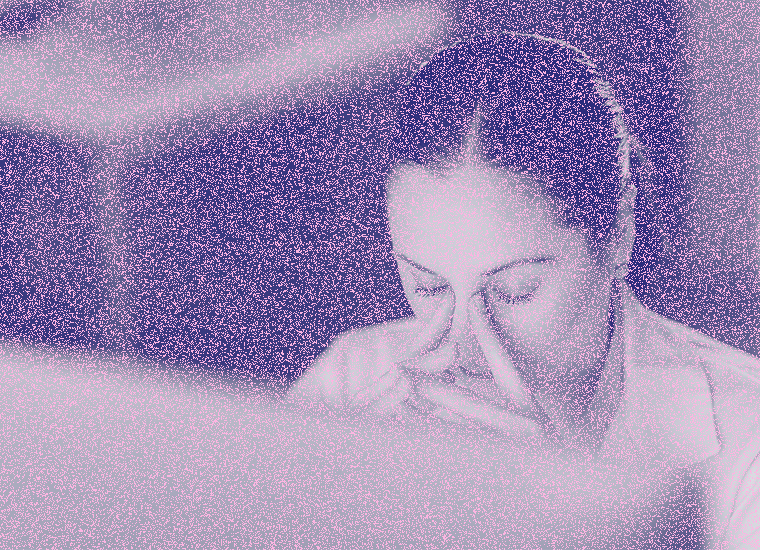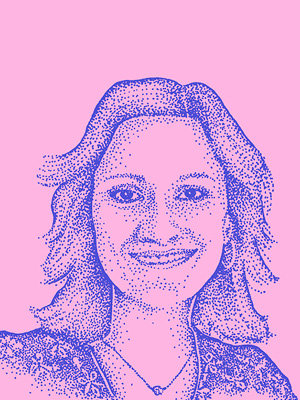Long Covid: a battle that is fought on several fronts
Publié il y a 8 mois
17.07.2025
Partager

Extraordinary and disabling fatigue is the common denominator for people with long Covid. It can prevent them from working for months, even years, and sometimes leaves them without resources. Their condition is hard to tell apart from anxiety or sleep disorders, and they often wander undiagnosed. Some even worsen their situation by pushing themselves to the limit, due to a lack of appropriate support. In the CHUV and Unisanté departments, more than 1,000 patients have already been treated for this 'post-viral fatigue syndrome' (myalgic encephalomyelitis, its scientific name). The multidisciplinary approach practiced in French-speaking Switzerland has allowed patients to make significant progress and to better understand the causes of their illness.
Variable symptoms, complex diagnosis
The main manifestation of long Covid is this generalized chronic fatigue, which prevents the performance of daily intellectual, cognitive, and physical tasks. Patients see their sleep duration shorten and show intolerance to exertion, which in some cases will lead them to "crash". These collapses will result in an uncontrollable urge to be bedridden, sometimes even fainting, occurring 24 to 48 hours after a trivial and typical effort, such as a work meeting or climbing stairs. However, other symptoms may appear irregularly depending on the person. They include, in particular, headaches, impaired concentration, olfactory disorders, a depressive and anxious state, shortness of breath, digestive disorders, palpitations, dizziness, or nausea.
Bernard Favrat, head of the long Covid consultation at the University Center for General Medicine and Public Health Unisanté in Lausanne, highlights the constant state of alert in which the patients are. “Long Covid patients suffer from a disorder of their parasympathetic nervous system, which regulates heart rate, relaxes muscles, and reduces stress. This mechanism is central to allowing the body to regenerate. For them, the inverse system, called the sympathetic system, is overactivated, which increases their blood pressure and induces this permanent hypervigilance.”
Certain categories of the population are more affected by long COVID than others. Swiss statistics indeed show that nearly 60% of women aged 30 to 50 are sick. These are also often very active people, with positions of responsibility, and who are used to multitask. Individuals who have already experienced burnout, who suffer from multiple allergies, diabetes, or obesity, are also more concerned.
A multidisciplinary approach
To respond to these multiple forms that the disease can take, various specialists are mobilised, from doctors and rehabilitation doctors to psychiatrists and psychologists, as well as osteopaths, physiotherapists, occupational therapists, or acupuncturists. Patients are generally followed in outpatient settings, or without hospitalisation, in one of the rehabilitation centers in French-speaking Switzerland.
Working at Unisanté and the sports medicine center of CHUV, Mathieu Saubade talks about one of the most taught techniques to patients called pacing. Its goal is to adapt activities according to the symptoms of the patients. “They are prescribed physical, sensory (related to balance), and brain-stimulating activities, using memory and speech. All this at a minimal dose by fractionating them through a series of breaks dedicated to the stimulation of the parasympathetic nervous system. Pacing will thus limit overstimulation of the sympathetic system and put them in a routine mode.” The recommended techniques consist, among other things, of breathing exercises, dynamic stretches, and mindfulness mediation. Specific advice on diet, sleep, and stress management is also given. The sports doctor seeks above all to pass on these tools in order to lead the patients towards autonomy. “It must be the patients who manage their symptoms, and those who do this regularly, for a few months, can see their condition improve significantly.”
To act on cognitive problems, a long Covid care program was created in September 2022 at the Leenaards Memory Center (CLM) of the CHUV. Mélanie Bieler-Aeschlimann, a neuropsychologist and researcher, has developed a series of six consultations. They help those who suffer from attention and memory disorders, hindering their professional and family life. “The goal of these group consultations is to explain how the disease works, particularly its impacts on memory, attention, and sleep. It also aims to provide tools that allow patients to manage the resources available to them as well as their emotions, in order to carry out their daily tasks and work.”

"I feel that I have regained 80% of my intellectual and physical abilities, and I still hope to be able to recover all of my abilities," explains Fanny.
A police inspector and participant in these group sessions, Fanny tells us: "I have always been very dynamic, and it was very difficult to accept that I could no longer do a tenth of what I used to do. Several doctors from the CHUV confirmed to me that I had long Covid. However, they also told me that after 20 years of career in contact with traumatic events, I had a way of functioning on the cognitive and emotional level that needed to change. I put into practice the tools of the psychologist Mélanie Bieler-Aeschlimann, and I managed my activities through pacing. That way, I was able to resume my professional activity gradually, and I am now working at 100% again. I feel that I have regained 80% of my intellectual and physical abilities, and I still hope to be able to recover all of my abilities.” It should be noted that, although important for many patients, the neuropsychological management of long Covid is not systematically reimbursed by health insurance.
Long Covid, recognised as a disease
Before COVID-19, post-viral fatigue syndrome was already known to the medical profession and had manifested itself in the context of other viruses. However, given the number of cases that have emerged during this pandemic, the World Health Organization (WHO) has decided to recognise long Covid as a pathology as such and has named it “post-Covid condition” in its International Classification of Diseases. (called ICD-11) in 2021. According to the current WHO definition, the syndrome involves a patient whose COVID symptoms have persisted beyond twelve weeks after contracting the virus.
Another struggle: disability insurance
In addition to diagnostic wandering, chronic fatigue, and the cost of certain treatments that are only partially reimbursed, patients must fight another battle. Disability insurance (DI) does not always accurately assess their situation. A journalist, suffering from long Covid for two years and who also participated in the consultations at the CLM, deplores this situation. “The DI does not ask us the right questions, and struggles to assess the intensity and complexity of our symptoms, despite the fact that they are documented and recognized by the WHO. We don’t mean to be sick. I have always been hyperactive, living mandate to mandate, I wrote books about health and I am a co-founder of a magazine, but today, I have to stop every 30 minutes otherwise I collapse, and the pressure put by the DI adds to the stress of my situation, because I don’t know if I one day I will be able to work like before.”
In 2023, 2,900 people called for DI following a Covid long-related illness. This corresponds to about 2% of total claims, according to the Federal Office of Social Insurance.
To go even further
Association Long Covid Switzerland
https://long-covid-info-ch/fr/
ALTEA Website, Long Covid Network
www.altea-network.com/en/
Conference on Long COVID (CHUV), March 2024
https://kdrive.infomaniak.com/app/share/888851/be963ed4-fc79-4ad7-bdde-8c1f8a964a81/preview/video/200
RAFAEL Post-Covid Platform of the Geneva University Hospitals
post-covid.hug.ch/en

